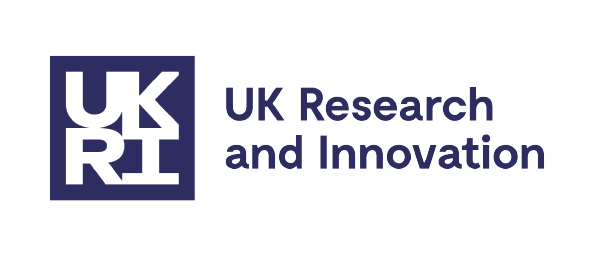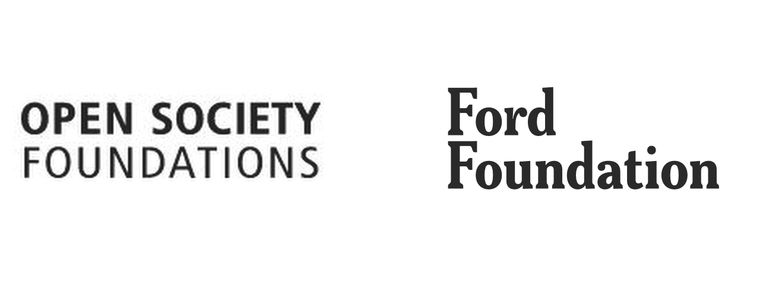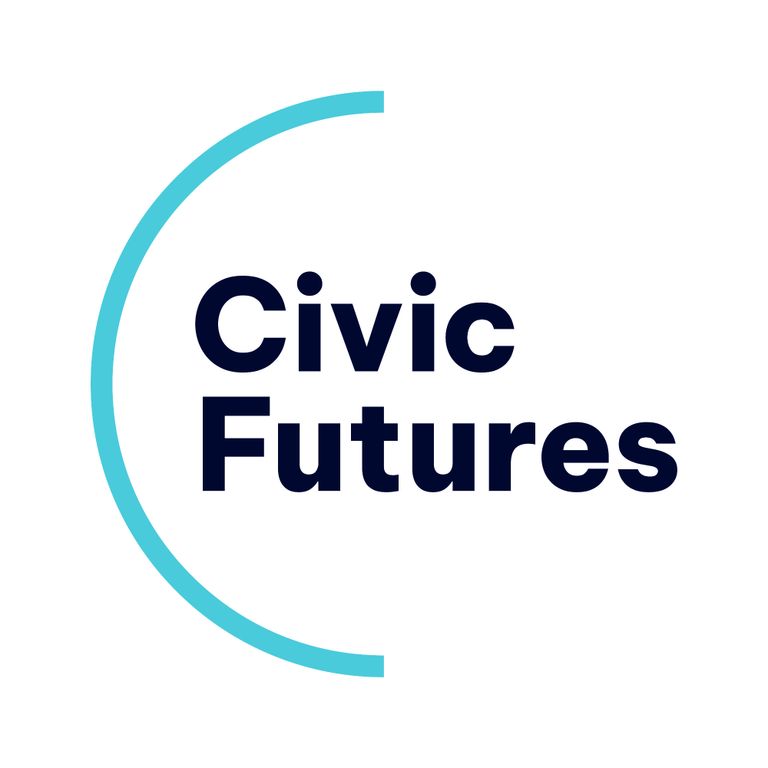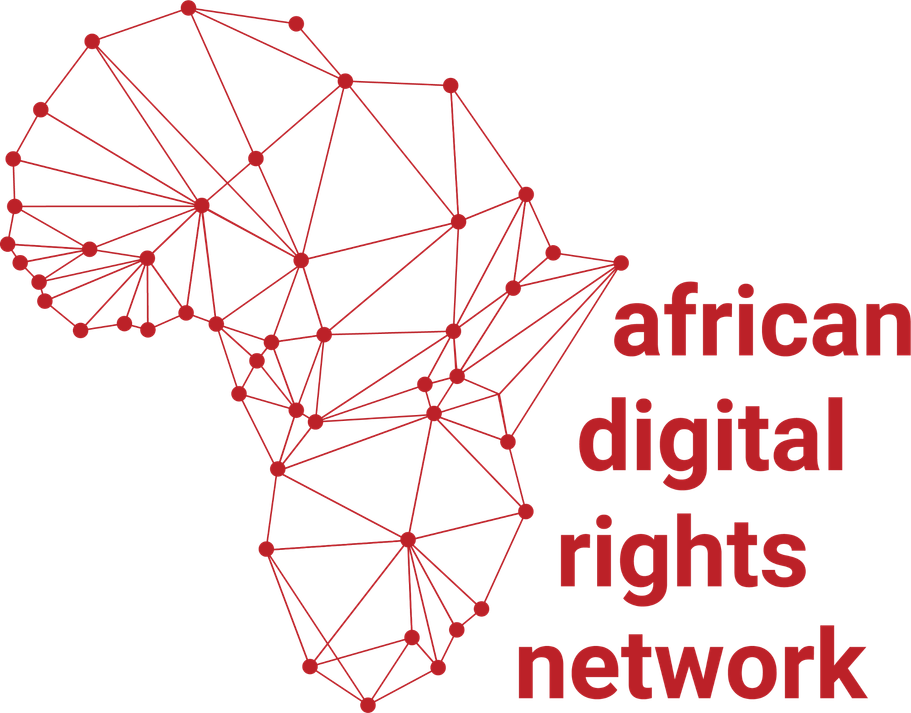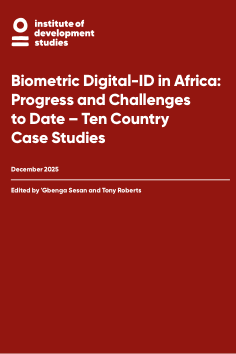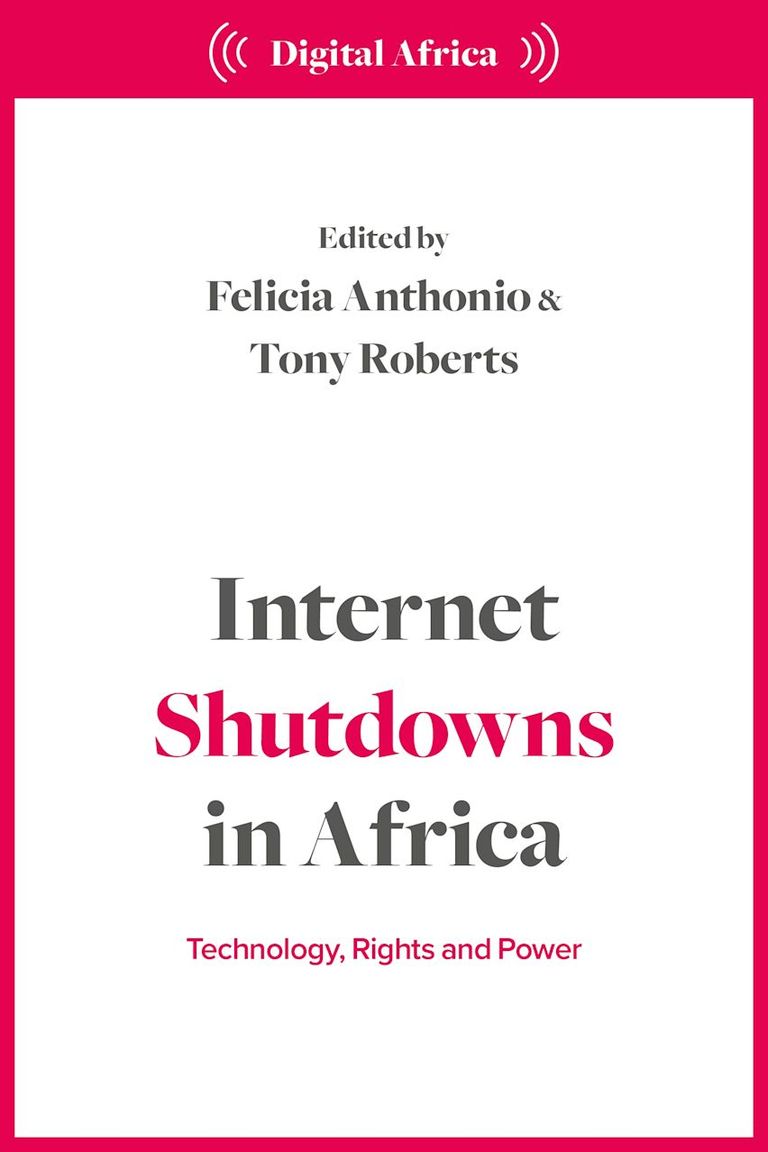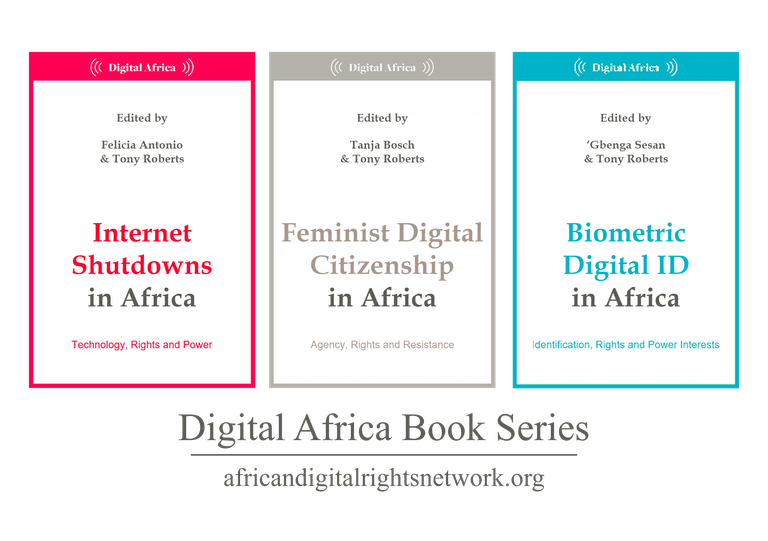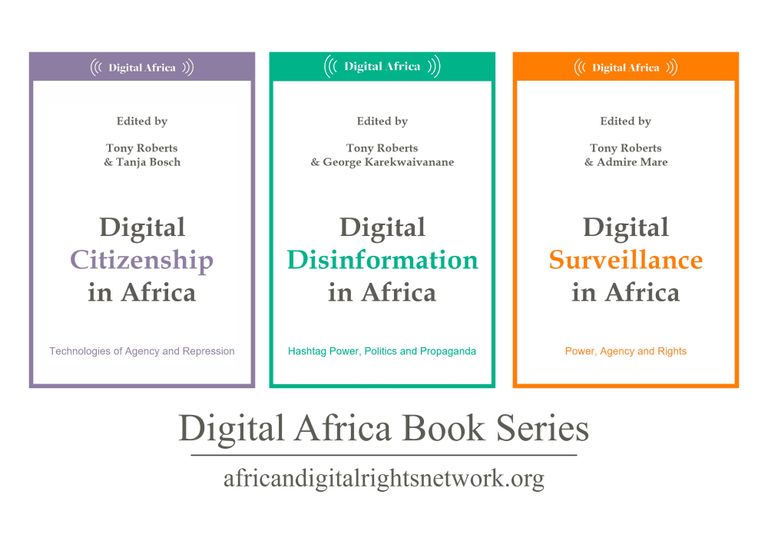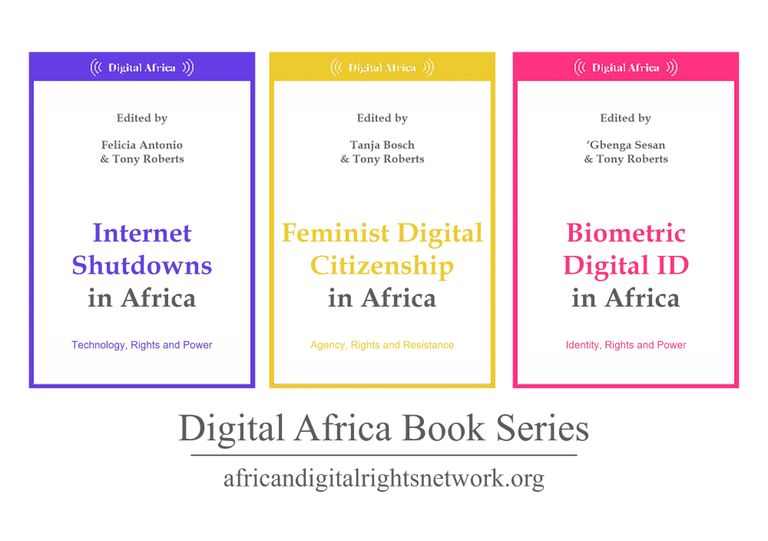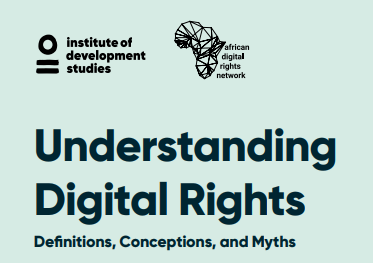NEW BOOK Published
Feminist Digital Citizenship: Agency, Rights and Resistance
11th December 2025
Find out more here.
This open access edited collection offers the first-ever book-length volume on feminist digital citizenship in Africa. It offers multiple, theoretically grounded case studies by African researchers covering countries across the length and breadth of the continent, including non-majority-English countries such as Malawi, Mozambique, and Senegal, which tend to receive less coverage in Anglophone scholarship.
These studies newly identify uniquely African practices of digital feminist activism. In so doing, they further develop our understanding feminist digital citizenship, especially when it comes to globally relevant themes such as intersections between gender and class and between gender and religion. This leads in turn to new insights into the developmental phases and overall nature of digital social movements more generally.
Edited by Prof. Tanja Bosch and Dr. Tony Roberts.
New Report launched
Biometric Digital-ID in Africa: Progress and Challenges to Date: Ten Country Case Studies
3rd December 2025
This report provides the most comprehensive and up-to-date account of digital-ID across Africa. It addresses the critical governance challenges of digital identification (digital-ID) systems currently unfolding across the continent. The findings in this synthesis are drawn from ten country reports produced by African researchers from across the continent in a study coordinated by the African Digital Rights Network (ADRN) in collaboration with Paradigm Initiative. The ten country case studies form an integral part of this report and feature Botswana, Côte d’Ivoire, Democratic Republic of the Congo (DRC), Egypt, Ethiopia, Liberia, Malawi, Namibia, Senegal, and Tunisia.
Edited by 'Gbenga Sesan and Tony Roberts
Join Us on 26th November 2025 at 16.00 GMT for a Webinar on Internet Shudowns
Did you know that internet shutdowns in Africa have doubled since 2016?
These disruptions have major implications for freedom of speech, access to information, and economic opportunities across the continent. The ADRN is committed to amplifying the voices and actions needed to address this pressing issue. Join us to discuss the future of internet freedom and what we can do to protect digital rights:
26 November 2025
16.00 to 17.30 GMT
sign up here: https://ids-ac-uk.zoom.us/webinar/WN_H4u7jlnVRpG8HnLi78b_jw#/registration
Internet Shutdowns in Africa Book Launches at FIFAfrica 25
23 September 2025
Editors: Felicai Anthonio and Tony Roberts
Part of the Bloomsbury Academic series: Digital Africa
Join us for the launch of the fourth book in the Digital Africa Series at the Forum on Internet Freedom Africa 2025 Conference in Windhoek, Namibia.
Take part in a discussion with the book's authors and editors.
Thursday 25th September at 11.30am in Gamsberg
Click here to find out more about the book and to download a copy
Call for Expressions of Interest
CLOSED
Chapter authors for new collected edition book:
"Digital Youth Participation in Africa: citizenship, unruly politics and technological affordances"
Posted 3rd July 2025
Editors: Nwachukwu Egbunike, Dercio Tsandzana and Tony Roberts
Part of the Bloomsbury Academic series: Digital Africa
Deadline for expressions of interest: 30th July 2025 (see below for details).
We invite scholars, activists, and practitioners to contribute chapters to an edited volume on the online political participation of African youth. (We use the African Union definition of youth to refer to people aged between 15 and 35-years old).
Digitally savvy youth are changing the established political landscape across the continent. From the so-called Arab Spring in Tunisia and Egypt, to the more recent #RejectFinanceBill in Kenya, these youth movements have adopted digital media to disrupt politics-as-usual and make their dissent heard and hold politician to account. Not only have their modes of performing citizenship evolved, but the unruly nature of their political participation has also dramatically changed. The affordances of digital technologies have made it possible for the voices of young people to be influential in political discourse and raise issues not adequately addressed by established media, political parties and civil society. The book will document and analyse these emerging new forms of digital youth participation through the lenses of digital citizenship, unruly politics, and technological affordances.
Building on our publication of previous volumes Digital Citizenship in Africa (2023) and Feminist Digital Citizenship in Africa (2025), this book continues an exploration of emerging forms of digital citizenship that challenge long-established traditions of political participation. This volume will explore in detail how African youth are making creative use of digital technologies to assert their active citizenship, make rights-claims, and demand change and accountability.
Citizenship is often framed as a legal status bestowed by the state on relatively passive citizens (Marshall 1950, Turner 1990) but feminist scholars argued for an agency-based conception of understood as active participation is civic and political life (Lister 1997, Isin 2002; Nyamu-Musembi 2005). Kabeer (2005) looked at feminist citizenship from the perspective of agency in the Global South and specifically African conceptions of uneven citizenship have developed from the critiques of Nyamnjoh (2006) and Mandami (1996).
Digital citizenship was framed by Mosberger et al (2008) Oyedemi (2015) and Egbunike (2018) as a means to expand citizen’s political engagement online. Isin & Ruppert (2020) framed digital citizenship as a process of rights-claiming, while Hintz et al reminded us that online agency is always subject to structural limits imposed by platform politics, surveillance and governance. Our own previous volume on “Digital Citizenship in Africa: technologies of agency and repression” (Roberts and Bosch 2023) provides a summary of these debates as well as a clear guide to the format and style of this proposed book.
Unruly politics is a concept that captures the disruptive nature of youth-led, digitally mediated movements in Africa since the Arab Spring. Unruly politics refers to political actions that resist, disrupt, or operate outside formal institutional frameworks (Offe & Offe, 2019; Edyvane, 2020) sometimes using non-traditional methods such as satire or humour (Mbembe 1992). These actions often originate from marginalized groups and are characterized by spontaneity, informality, and resistance to normative political discourse (Beck et al., 2023; Witteborn, 2023). Unruly politics challenges the state’s expectation that political engagement conform to institutionalized norms and legalistic language. Instead, it represents a form of political agency that asserts autonomy and reclaims power on the citizen’s own terms (Khanna et al., 2013; Çıdam et al., 2020; Beck et al., 2023; Witteborn, 2023).
Affordances is a concept widely used to analyse how and why different technologies provide different ‘action possibilities’ (Gibson 1972; boyd 2010; Tufecki 2017). Social media for example introduced the new action possibility for young people to communicate their voice, words, images and videos, globally, instantly, repeatedly, relatively affordably, enabling their participation in political debate without the mediation of editors or other powerholders. But different platforms ‘afford’ different action possibilities to young people (and to police and security services). Understanding the distinct affordances of different digital technologies, platforms, and online spaces is central to any deep and nuanced understanding of how digital tools and spaces can afford new forms of political participation as well as new forms of surveillance and micro-targeting (Benjamin 2018; Roberts and Mare 2025).
This book will use these three concepts as part of authors’ conceptual framework to document and analyse a range of novel forms of political participation by digital youth across the continent. We welcome contributions from a range of disciplines and methodological approaches, including but not limited to the below, and we encourage chapters that provide diverse case studies of youth digital citizenship from across the continent. Chapters selected for publication are likely to have a clear empirical and geographical grounding and address a stated research question. Example chapters might include:
- Unruly gender politics in Kenya: why GenZ digital activism reveals continuities and discontinuities in the operation of power
- Digital counter-publics in Angola: how memefication dislodged the MPLA in Luanda but couldn’t reach the rural majority
- Online youth participation in Egypt: the risks and rewards of TikTok political influencing
- Connective Action in Tunis: why the affordances of digital space enable decentralised youth activism and limit it.
- Queer Digital Citizenship in Uganda: why young people created online spaces of refuge, care and resistance
- Uninstalling the gerontocracy in Cameroon: why digital youth are revolting
Submission Guidelines:
We invite expressions of interest of +/-800 words that outline the chapter’s focus, research question, conceptual approach and methodology. Please also provide a bibliography. Expressions of interest must include a short biography of the authors (150 words) and include links (or attachments) to two relevant prior publications.
Deadline for expressions of interest: 30th July 2025
Submissions should include the subject line “EoI: Digital Youth Participation in Africa” and be sent to the editors negbunike@pau.edu.ng and dercio.adpub@gmail.com and t.roberts@ids.ac.uk
Example References:
Beck, C. J., Bukovansky, M., Chenoweth, E., Lawson, G., Nepstad, S. E., & Ritter, D. P. (2022). On revolutions: Unruly politics in the contemporary world. Oxford University Press.
boyd, d. (2010). Social Network Sites as Networked Publics: Affordances, Dynamics, and Implications. In Z. Papacharissi (Ed.), A Networked Self: Identity, Community, and Culture on Social Network Sites (pp. 39–58). New York: Routledge. https://www.danah.org/papers/2010/SNSasNetworkedPublics.pd
Egbunike, N. (2024). Digital Youth and Social Movements (Perspectives from Nigeria). Lagos: Pan-Atlantic University Press.
Egbunike, N. A. (2023). Political participation and the social media network of young Nigerians. Journal of African Media Studies, 15(3), 343-361, https://doi.org/10.1386/jams_00110_1
Egbunike, N. (2018). Hashtags: Social Media, Politics and Ethnicity in Nigeria, Lagos: Narrative Landscape Press.
Gibson, J. J. (1972). The affordances of the environment. Reasons for realism: selected essays of James J. Gibson, 408-410.
Halpern, D., & Gibbs, J. (2013). Social media as a catalyst for online deliberation? Exploring the affordances of Facebook and YouTube for political expression. Computers in Human Behavior, 29(3), 1159–1168. https://doi.org/10.1016/j.chb.2012.10.008
Hintz, A., Dencik, L., Wahl-Jorgensen K. (2019) Digital Citizenship in a Datafied Society, Polity Press.
Isin, E. F. (2002). Being Political: Genealogies of Citizenship. University of Minnesota Press.
Isin, E., & Ruppert, E. (2020). Being Digital Citizens (2nd ed.). Rowman & Littlefield International.
Kabeer, N. (2005). Inclusive Citizenship: Meanings and Expressions. Zed Books.
Lister, R. (2003) Citizenship: feminist perspectives, Palgrave Macmillan.
Khanna, A., Mani, P., Patterson, Z., Pantazidou, M., & Shqerat, M. (2013, June). The Changing Faces of Citizen Action: A Mapping Study through an ‘Unruly’ Lens. IDS Working Paper, Volume 2013, No 423. Retrieved from: https://www.ids.ac.uk/download.php?file=files/dmfile/Wp423.pdf
Lister, R. (2003). Citizenship: Feminist Perspectives (2nd ed.). Palgrave Macmillan.
Mamdani, M (1996) Citizen and Subject, Princetown Press.
Mbembe, A. (1992b) ‘The banality of power and the aesthetics of vulgarity in the postcolony’, Public Culture 4(2): 1–30.
Mossberger, K., Tolbert, C. J., & McNeal, R. S. (2008). Digital Citizenship: The Internet, Society, and Participation. MIT Press.
Nyamnjoh, F. (2003) Insiders and Outsiders: citizenship and Xenophobia in Contemporary Southern Africa, London. Zed Books.
Ohme, J. (2019). Updating citizenship? The effects of digital media use on citizenship understanding and political participation. Information, Communication & Society, 22(13), 1903-1928.
Oyedemi, T. D. (2015). Internet access as citizen’s right? Citizenship in the digital age. Citizenship Studies, 19(3–4), 450–464.
Roberts, T. and Bosch, T. (2023) Digital Citizenship in Africa: technologies of agency and repression. London, Zed Books/Bloomsbury.
Roberts, T. and Mare, A. (2025) Digital Surveillance in Africa: power, agency and rights. London, Zed Books/Bloomsbury.
Theocharis, Y., de Moor, J., & Van Deth, J. W. (2021). Digitally networked participation and lifestyle politics as new modes of political participation. Policy & internet, 13(1), 30-53.
Turner, B. S. (1990). Outline of a theory of citizenship. Sociology, 24(2), 189–217. https://doi.org/10.1177/0038038590024002002
Witteborn, S. (2023). Unruly speech: Displacement and the politics of transgression. Stanford University Press.
Yang, H. C., & DeHart, J. L. (2016). Social media use and online political participation among college students during the US election 2012. Social Media + Society, January-March 2016: 1–18.
Young, I. M. (1990). Justice and the Politics of Difference. Princeton University Press.
Call for Expressions of Interest
CLOSED
Writing Workshops for Journal Article Submission in Digital Authoritarianism
21st May 2025
The African Digital Rights Network (ADRN) invites African Early Career Researchers (ECRs) to express interest in participating in a series of online and in-person Writing Workshops. The workshops will provide training and mentorship to support the submission of your first publication of a paper in an academic journal.
You will receive guidance and multiple rounds of written feedback from journal editors to support you in submitting a paper to a special issue of the international journal Information Technology for Development.
Submitted papers will focus on digital authoritarian practices (including digital surveillance, digital disinformation, and internet shutdowns) as well as resistance to these developments including by demanding digital rights through collective digital citizenship. We anticipate these developments will be analysed by authors through conceptual lenses that include, but are not limited to, digital rights, gender justice and power interests.
Successful applicants will attend a series of six online workshops between July 2025 and May 2026 and will attend a week of in-person workshops in Luanda, Angola from Oct 13-17th 2025.
EXTENDED Deadline for Expressions of Interest: 28th June 2025
About the Project
EXPANDED criteria: Candidates will have previous publications on digital rights in the form of country reports or book chapters (we need to read this to assess applicants). The funder's definition of an Early Career Researcher is someone with a Masters or PhD degree (but not someone who gained a PhD more than 7-years ago, and not someone who already has multiple publications in academic journals).
The project is designed to support the next generation of African digital rights researchers by developing their existing research for publication in a leading journal.
We will initially recruit 20 researchers to attend two online information sessions and ask them to develop short drafts of academic papers. We will then select the authors of 10 of those submission to attend the in-person workshop in Angola. At the workshop we will assign each author a journal editor who will act as a personal mentor. We will then use further online workshops to support emerging researchers to revise and improve their draft papers for submission to a special issue of the journal Information Technology for Development.
The subject of the special issue is “Digital Authoritarianism in Africa”. We will accept papers on any aspects of digital authoritarianism including digital disinformation, digital surveillance, internet shutdowns other uses of digital technologies that shrink the civic space for digital citizenship and otherwise constrain citizen agency and freedoms.
This project aims to support ‘emerging scholars’ by which we mean researchers who have previously published country reports or book chapters on digital rights but who do not already have multiple published articles in leading academic journals.
The project is funded by The British Academy
Participants will gain:
- Insight into the mechanics of academic publishing
- Feedback from experienced journal editors
- One-to-one mentoring
- A supportive peer community
- Opportunities for publication in a high-impact international journal
We invite African early career researchers who:
- Are based in ODA-eligible African countries plus Egypt, Kenya, South Africa.
- Have existing research in digital rights, digital authoritarianism or digital citizenship
- Are eager to publish in an international peer-reviewed journal
- Are free and able to participate in all stages of the programme (online and in-person)
To lodge an expression of interest please send the following documents to t.roberts@ids.ac.uk by 28 June 2025:
- A 1-page motivation letter, explaining the focus of the paper that you wish to publish (max 500-words which should include your chosen issue focus, country focus, case study, key concepts, and research methodology. In a cover letter (max 500-words) please explain your motivation for inclusion in this workshop, how you meet the eligibility criteria, and attach your CV (max 3-pages). IMPORTANT: please include links to your most relevant publications. We cannot assess application that do not provide us with copies of prior publications (max 3 publications).
Please use the subject line: "Expression of Interest – Writing Workshop" in your email.
References
Akinyetun T. and Ebunine V. (2022) The Challenge of Democratization in Africa: From Digital Democracy to Digital Authoritarianism
Ayalew, Y. (2021) From Digital Authoritarianism to Platforms' Leviathan Power: Freedom of expression in the digital age under siege in Africa
Freyburg, T. & Garbe, L. (2018) Authoritarian practices in the digital age| Blocking the bottleneck: Internet shutdowns and ownership at election times in Sub-Saharan Africa
Mare, A. (2020) Internet shutdowns in Africa| state-ordered internet shutdowns and digital authoritarianism in Zimbabwe
Roberts, T. & Karekwaivanane, G. (2023) Digital Disinformation in Africa: hashtag politics, power and propaganda. Zed Books, Bloomsbury.
Roberts, T. & Oosterom, M. (2024) Digital authoritarianism: a systematic literature review
CLOSED
Call for Chapters: new book
"Queer Digital Citizenship in Africa: spaces of agency and resistance"
8th April 2025
Edited by Tanja Bosch, Nyx Mclean and Tony Roberts
Bloomsbury Academic, Digital Africa Series
Deadline for abstracts: 30 April 2025 (see below for details).
We invite scholars, activists, and practitioners to contribute to an edited volume on Queer Digital Citizenship in Africa. Following the publications of Digital Citizenship in Africa (2023) and Feminist Digital Citizenship in Africa (2025), this book continues the exploration of digital rights, identities, and activism on the continent. This volume aims to explore how queer individuals and communities across the African continent engage with, resist, and reshape digital spaces to assert their citizenship, visibility, and rights. It seeks to challenge dominant narratives of queer exclusion and victimhood, by focusing on agency, activism, and community-building in online environments.
As Volpp (2017) argues, queer citizenship must be understood beyond formal legal rights, incorporating the lived realities of LGBTQI+ individuals who navigate exclusionary state structures while forging alternative spaces for belonging. In the African context, online platforms serve as vital arenas for such negotiations, where queerness is both contested and reimagined. Digital spaces have thus become critical for LGBTQI+ communities, offering platforms for advocacy, resistance, identity formation, and cultural production. This book will explore why queer Africans are using digital spaces to perform citizenship; what (dis)advantages digital spaces afford; and what (dis)benefits have been experienced. What can be done in online spaces that cannot be done in offline spaces in different countries across the continent? McLean and Mugo (2015) note that digital platforms enable queer African women to express their lived experiences, challenge dominant narratives, and establish counter-publics that redefine their social and political realities. Keeling (2014) further conceptualizes digital platforms as facilitating queer operating systems (Queer OS) that enable imaginative, unexpected, and ethical relations, thus transforming the social and political dynamics of queer communities.
While mainstream discourses often portray queer Africans as victims of oppression, digital environments provide avenues for self-representation, organizing, and community-building beyond state-sanctioned boundaries. However, these digital spaces are also sites of regulation, surveillance, and cyber violence, reflecting the broader contestations around queer citizenship. McLean and Mugo (2015) emphasize that despite the empowering potential of digital spaces, these platforms also become arenas where marginalized identities must negotiate increased visibility with the risks of surveillance and digital policing. Reddy, Monro, and Matebeni (2018) highlight how queer African activism is deeply embedded in both local and transnational struggles, challenging dominant state and societal structures while engaging with global discourses on LGBTQI+ rights.
Moving between the local and the transnational, queerness in Africa moves beyond extended categories of gender and sexuality towards a holistic citizenship that subverts hegemony and power (Nyanzi 2014; Matebeni 2017;). This subversion has afforded African LGBTQI+ new opportunities of ‘queering’ the digital space. This volume builds on interdisciplinary perspectives to interrogate how digital technologies facilitate or hinder queer belonging, activism, and cultural expression across African contexts. It aims to provide new insights into the intersections of gender, sexuality, technology, and citizenship in the African digital landscape.
We welcome contributions from a range of disciplines and methodological approaches, including but not limited to the below, and we encourage chapters that provide diverse case studies of queer digital citizenship:
- Digital Activism and Advocacy: How do queer Africans use digital platforms for advocacy, policy change, and resistance? What are the risks and rewards of online organizing?
- Social Media and Queer Visibility: How do platforms like TikTok, Twitter, Facebook, and Instagram shape queer self-representation, discourse, and community formation in African contexts?
- Queer Digital Counter-publics: How do African queer individuals create alternative digital publics that resist mainstream homophobic and transphobic narratives? How do African queer individuals use coding, encryption, and other digital strategies for subversive digital practices?
- Online Surveillance and Digital Policing: How do African states and societies regulate and control queer digital spaces? What strategies do queer users employ to navigate censorship, cyber harassment, and surveillance?
- Queer Archives and Digital Memory: How are African LGBTQI+ histories being documented and archived online? What tensions arise between digital preservation and the risks of hypervisibility?
- Intersectionality and Digital Citizenship: How do race, class, gender identity, and disability intersect with queer digital experiences in African contexts?
- Queer Diasporas and Digital Connectivity: How do African queer diasporas engage with home communities through digital platforms?
- Popular Culture and Queer African Expressions Online: How do digital cultural productions—music, dance, art, memes—contribute to the articulation of queer African identities?
- Queer Play, Creativity, and Virtual Realities: How do African queer individuals use digital art and creativity, gaming, and virtual reality to imagine and inhabit joyful, affirming worlds? What role does digital playfulness have in fostering queer joy and self-expression?
- Queer Digital Intimacies and Relationships: How do digital technologies shape queer dating, relationships, and sexual cultures in African contexts? Inclusive of the negotiation of safety and desire in digital spaces. What are the creative ways of signalling queerness online while maintaining safety?
- Digital Economies and Queer Livelihoods: How do African queer individuals engage in digital economies for survival? Inclusive of gig work, crowdfunding and other forms of online labour that offer economic agency in contexts of discrimination.
Submission Guidelines
We invite extended abstracts of +/-800 words that outline the chapter’s argument, methodology, and relevance to the volume’s theme. Please include a reference list, and a short biography (150 words) with your submission.
Deadline for abstracts: 30 April 2025
Submissions should be sent to tanja.bosch@uct.ac.za with the subject line “Queer Digital Citizenship in Africa – Chapter Proposal.”
References
Keeling, K. (2014). Queer OS. Cinema Journal, 53(2), 152–157.
Matebeni, Z. (2017). Southern perspectives on gender relations and sexualities: A queer intervention. Revista de Antropologia, 60(3), 26-44.
McLean, N., & Mugo, T.K. (2015). The Digital Age: A Feminist Future for the Queer African Woman. IDS Bulletin, 46(4), 97–100.
Nyanzi, S. (2014). Queering Queer Africa. In Matebeni, Z. (Ed.), Reclaiming Afrikan: Queer Perspectives on Sexual and Gender Identities (pp. 65-70). Athlone, Cape Town: Modjaji Books.
Reddy, V., Monro, S., and Matebeni, Z. Introduction. In Queer in Africa: LGBTI Identities, Citizenship and Activism.
Volpp, L. (2017). Chapter 8. Feminist, Sexual and Queer Citizenship. In The Oxford Handbook of Citizenship. Oxford University Press, UK.
ADRN publishes guide to digital rights:
14th March 2025
ADRN has published a new guide to digital rights.
When our Ford Foundation project brought together workers' rights, disability rights, and digital rights actors, we found that digital rights terms were often not used or understood in other organisations. So we produced a handy introductory guide called "Understanding Digital Rights" as a clear and accessible guide for those new to digital rights - or for anyone wanting to expand their knowledge and learn about key digital rights organisations and available resources.
In the guide we explain digital rights as understood in three different ways:
1. As a set of entitlements provided in human rights law
2. As a framework for analysing technology and projects
3. As a form of activism to tackle right-violations and injustice
Click here to download the guide which is free and open access.
CLOSED
Call for expressions of interest
10th March 2025
New research project:
Safe City Public Space Surveillance in Africa: rights, interests and justice
This project will map current developments in the roll-out of surveillance of public space across Africa as part of so-called Safe City or Smart City programmes.
The first phase of the research will document the current state-of-play by detailing the dimensions, features, and effects of public space surveillance in ten Africa countries. For this phase we will commission country reports and publish an online report on public space surveillance in Africa. The research will document when the smart city and Chinese ‘safe city’ projects started, the size of the contracts, the lead Ministries and agencies, the private companies involved, the technologies procured, the location and volumes of systems, the impacts to-date and the hopes and concerns of citizens, civil society and governments. The phase one report will provide the most detailed and comprehensive documentation of public space surveillance in Africa to-date.
The second phase of the research will build on the work of phase one studies by producing a collected edition book featuring in-depth critical analysis by ten African scholars. Each chapter will analyse the data and evidence documented in the first phase through the analytic lens of digital rights, infrastructural justice and power interests. The in-depth case studies published in the book will provide the most detailed analysis of the drivers, dynamics and directions of smart city and safe city surveillance in Africa to date.
The book will be edited by Dr. Wairagala Wakabi and Dr. Tony Roberts and will be the seventh title in the African Digital Rights Network (ADRN) series of 'Digital Africa' books published by Bloomsbury. Please review the previous ADRN online reports and collected edition book on the ADRN website to clarify the two kinds of outputs that we will produce in this project.
Call for abstracts:
We invite expressions of interest from researchers interested in contributing to this project in the form of 300-word expressions of interest stating the proposed country, key issues, and distinguishing factors of public space surveillance in your country. The deadline for submissions is Monday 31st March 2025. Please note that although we will initiate discussion with potential authors in April 2025 to help us refine the research design and book proposal, it is not expected that writing will begin in earnest until June 2025.
Please include with your 300-word expression of interest, a one-page CV that provides links to any of your own previous publications in this area. We welcome submissions from activists and practitioners and from both emerging and established scholars. We are keen to include case studies from activists and researchers writing about countries that are under-represented in the anglophone literature.
Please submit your expression of interest to t.roberts@ids.ac.uk and wakabi@cipesa.org by email - in a Word document – and please include
“Safe Cities Africa" in the subject line.
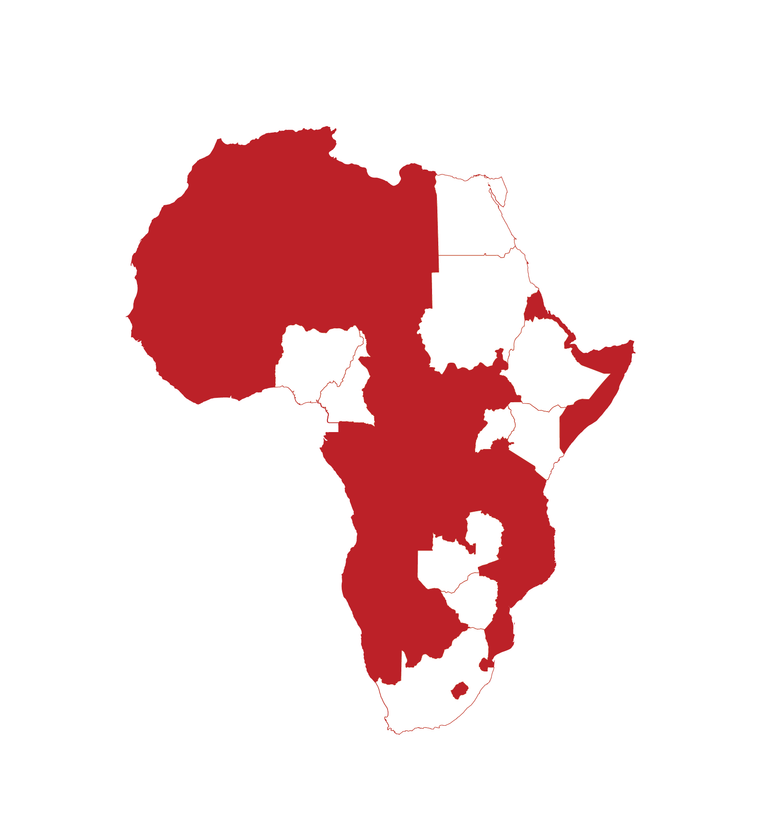
Digital Surveillance in Africa: Power, Agency and Rights
18 February 2025
The third book in the Digital Africa Series 'Digital Surveillance in Africa' will be published on March 20th 2025.
You can read and freely download the introductory chapter here.
The paperback book is available to pre-order from the publisher Zed Books/Bloomsbury or from your usual bookseller.
The book provides the most comprehensive documentation to date of digital surveillance in each country as well as the most sustained analysis of the socio-cultural, political, and economic drivers and forms of resistance to rights-violating surveillance across the continent. Ten African scholars provide in-depth case study analysis from eight African countries.
To provide context, each chapter begins with a brief history of pre-digital surveillance systems under colonial and post-liberation governments. Authors then provide empirical studies of five types of surveillance technology: mobile interception, internet interception, social media monitoring, biometric digital-ID and public space surveillance using facial recognition. Analysis is provided of how the use of rights-violating digital surveillance affects (dis)advantage and serves specific power interests. Each chapter concludes with concrete policy recommendations at local, national, and international levels.
You can read more and pre-order a hard copy of the book by following this link
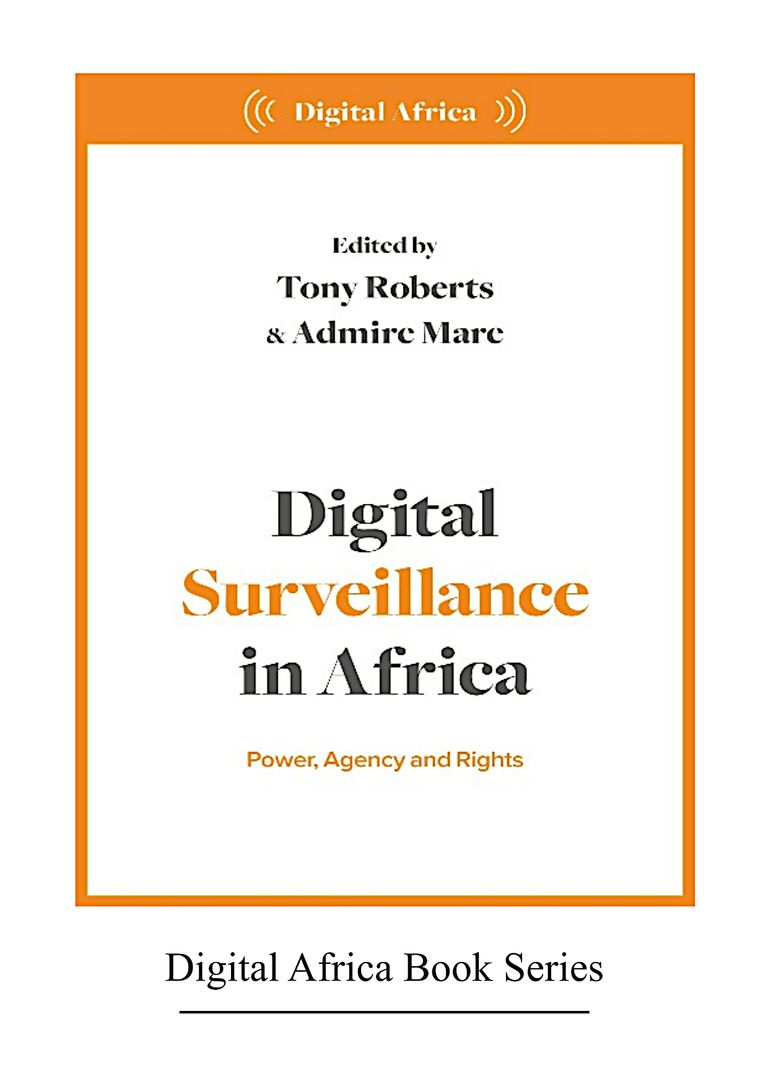
New research project began Jan 2025:
Biometric Digital-ID in Africa: identity, power and interests
14th January 2025
The first phase of this new project will provide the most comprehensive mapping to date of developments in Digital-ID across the continent. In the second half of the year, phase two of the project will analyse the drivers and dynamics of digital-ID to uncover the impact on identities, power and interests. As governments roll-out biometric identity systems and link them to citizens' banking and mobile phone accounts we study whether they become a precondition of access to rights, services & entitlements.
The first phase of the research will produce an online report that documents the dimensions, and detailed specifications of Digital-ID in ten Africa countries including examples from all of the continent's main regions and language groups. The second phase of the research will produce a collected edition book with space for in-depth analysis of who benefits and what interests are served by biometric digital-ID across Africa.
This research is being co-edited by 'Gbenga Sesan of Paradigm Initiative Nigeria.

The Digitalisation of Social Protection in Africa: The Perspective of Marginalised Workers
3rd September 2024
New research report published
ADRN has partnering with an impressive array of marginalised workers' organisations to support their unique research into the digalisation of social protection.
What is social protection?
This is the first study of digital social protection from the perspective of informal marginalised workers in Africa. ADRN worked with domestic workers' leaders to conduct interviews with domestic workers and home-based workers to conduct focus groups with home-based workers. This participatory action research worked to foster trust among participants and means that knowledge is not extracted but instead built within workers' organisations to directly inform their on-going work.
Six studies were carried out with domestic workers, disabled workers, migrant workers, and home-based workers in Ghana, Kenya, Nigeria, South Africa, Tanzania, Uganda, and Zambia. This research report synthesises their findings and recommendations to establish a clear agenda for change.
Project partners include WIEGO informal workers, the International Domestic Workers Federation (IDWFED), HomeNet Kenya (home-based workers), StreetNet International (street workers), JONAPWD (disabled workers), ATUMNET (migrant workers) and the African Platform for Social Protection. These organisations engaged over 700 workers in interviews or focuse groups, in six African countries.
They found that although the right to decent work and social protection is guaranteed to all citizens in international human rights law, the most marginalised workers are often left behind when social protection systems are digitalised.
Formal sector workers pay into social insurance schemes automatically from every paycheck and receive social protection payments if they are sick, unemployed or retire. Informal workers often lack regular employers and paycheck and experience intermitant and low income. They often earn too little to be able to join contributory social insurance funds but too much to qualify for non-contributory payments to the poorest.
The digitalisation of social protection promised to increase the convenience and efficiency of accessing social protection entitlements (and it does for those with smartphones, connectivity, and digital literacy), but our research shows that millions of informal workers are being further excluded by the digitalisation of social protection because they cannot access and navigate the online systems.
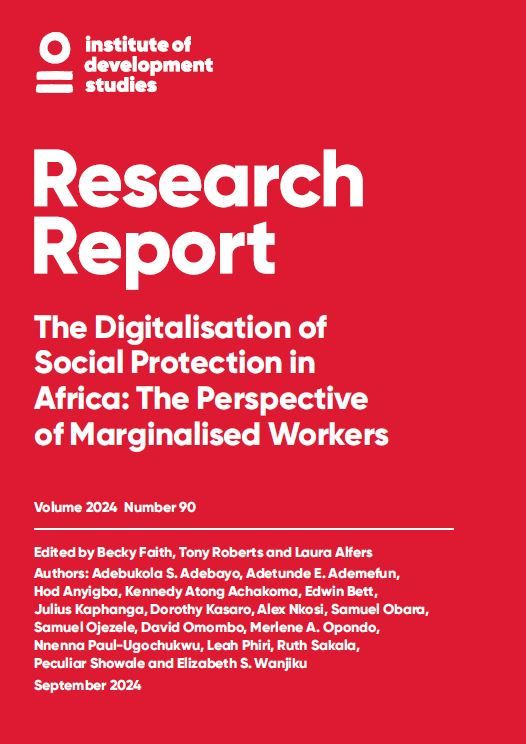
ADRN attends #FIFAfrica Senegal
digital rights conference
18 September 2024
ADRN delegation attends #FIFAfrica2024
Digital Social Protection report launch
A delegation of African workers will attend FIFAfrica in Dakar and will officially launch our report on Digital Social Protection on Friday 27th September 2024.
The research is the first to analyse the digitalisation of social protection from the persective of marginalised workers, including domestic workers, home-based workers, disabled workers and migrant workers. Partner organisations conducted interviews and focus groups with over 700 workers in six African countries.
ADRN will also use the occaision of FIFAfrica to announce new projects on digital authoritarianism planned for 2025 and 2026.
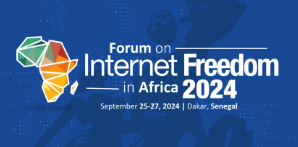
Closed
Digital-ID in Africa
call for expressions of interest
24th April 2024
New research project:
Digital-ID in Africa: identity, power and interests
This project will map current developments in Digital-ID across the continent as biometric identity systems, linked to citizens' banking and mobile phone accounts, are rolled out and become a precondition of access to services & entitlements.
The first phase of the research will be a report that documents the drivers, dimensions, dynamics and directions of Digital-ID in ten Africa countries including examples from all of the continent's main regions and language groups. The research will document the impact of new identification and verification technologies on citizens' digital rights.
The second phase of the research will build on the work of phase one studies by producing a collected edition book featuring in-depth critical analysis by ten African scholars on the Digital-ID systems emerging in ten Africa countries, and will provide ten in-depth case studies to expand knowledge and theory in this space.
The book will be edited by 'Gbenga Sesan and Dr. Tony Roberts and will be the sixth title in the ADRN series of 'Digital Africa' books published by Zed Books.
Call for abstracts:
We invite expressions of interest from researchers interested in contributing to the project in the form of 300 word abstracts stating the proposed country, issue, and conceptual focus. The deadline for submissions is 14th June 2024. Please note that although we will initiate discussion with potential authors in July 2024 to help us refine the research design and book proposal, it is not expected that writing will begin in earnest until January 2025.
Please include with your expression of interest, a short CV, that includes links to your previous publications in this area. We welcome submissions from activists and practitioners and from emerging and established scholars. We are keen to include case studies from activists and researchers writing about countries that are under-represented in the anglophone literature.
Possible topics for the volume include, but are not limited to:
- The role of digital-ID in expanding legal identity and access to rights and entitlements
- Digital-ID and digital government services
- The role of the prviate sector in biometrics and digital-ID
- Power analysis of the range of interests driving digital-ID
- Participatory / ethographic research with citizens' included or excluded by biometric Digital-ID
- Intersectional analysis of 'who benefits'?
- How to expand citizen influence in Digital-ID agendas in ways that expand rights, freeoms and entitlements
Please submit your expression of interest to t.roberts@ids.ac.uk by email in Word format including “Digital-ID in Africa" in the subject line.

ADRN attended #DRIF24
Digital Rights and Inclusion Forum
in Accra from April 23-25th
25th March 2024
DRIF24 is one of the largest pan-African digital rights fora bringing together activists, civil society organisations, academia, tech companies & govt. It is organised and hosted annually by ADRN's, Paradigm Initiative Nigeria,
This year DRIF24 is being held in Accra from 23rd- to 25th April at the Alisa Hotel with the theme 'Fostering Rights and Inclusion in the Digital Age'.
Many ADRN members attended #DRIF24 and we organised three events:
- Panel presenting ADRN research on Workers' Perspectives on the Digitalisation of Social Protection
- Book Launch: "Digital Disinformation in Africa: hashtag politics, power, and propaganda" plus new book announcement
- ADRN Annual General Meeting: a hybrid event in person in Accra and online at 14:00 on the 24th
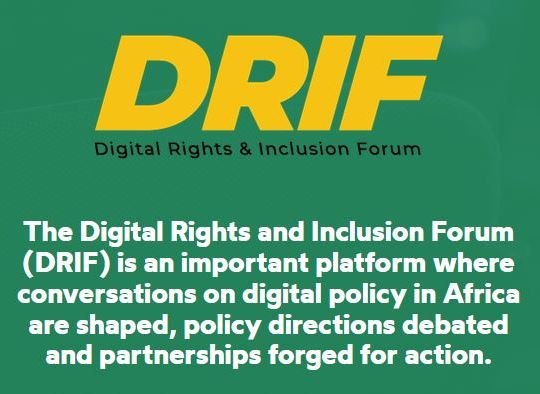
Closed
Call for Chapter Abstracts extended to 31st August 2023
25th July 2023
New book: Feminist Digital Citizenship in Africa
Feminist Digital Citizenship in Africa: transformative online feminism. Edited by Dr. Tanja Bosch and Dr. Tony Roberts.
A collected edition for Zed Books for publication in 2024.
Call for abstracts:
We invite abstract submissions for chapters to be included in a collected edition book on digital feminist citizenship in Africa towards a book proposal for submission to Zed Books.
In recent years, we have seen a renewal in feminist politics “that emerge from the interface of digital platforms and activism today” (Baer, 2016). Women increasingly use participatory digital media to network and organize in various ways, including against sexism and rape culture (Mendes et al., 2019). Digital feminist protest culture has facilitated the emergence of digital feminist citizenship, whereby women use digital technologies to claim their rights as citizens and challenge structures that limit their participation in the public sphere.
Feminists have, however argued that the discourses and practices of citizenship “are deeply gendered and racialized”; as well as “deeply ambiguous and exclusionary” (Ackelsberg, 2009, 119-120), as it has generally been accepted that citizenship occurs in the public domain, thus excluding private or domestic activities and those located in those areas, e.g., women. Moreover, feminist scholars have highlighted the failure of citizenship rights vested in liberal democracies to meet the needs of women and other minority groups, including those who are socially or economically marginalised (Lister, 1997).
We invited you to submit a 200-word abstract by 31st August 2023. Please include a short CV, including a bibliography, along with your submission. We welcome submissions from activists and practitioners as well as emerging and established scholars.
We encourage case studies located in various parts of the continent, empirical work, as well as theoretical reflections, which contribute toward an exploration of contemporary feminist protest and digital feminisms.
Possible topics for the volume include, but are not limited to:
- The role of digital technologies in shaping feminist citizenship in Africa
- Algorithmic culture and online identity
- Case studies of digital feminist campaigns/online activism
- Other manifestations of digital feminist citizenship
- The interplay between offline and online feminist citizenship practices
- Transformational feminist digital citizenship
Sbmit your abstract to Tanja.Bosch@uct.ac.za and T.Roberts@ids.ac.uk with “Digital Feminist Citizenship” in the subject line. If our proposal is accepted, we will ask for an extended abstract of 1500 words by mid-September and a first draft of 2500-3000 words by the end of November. Full final papers of 6,000 – 7,000 words will be due in Jan-Feb 2024.
This volume is expected to make an important contribution to the growing body of scholarship on digital citizenship and digital activism in Africa, and we look forward to receiving your submissions.citizens

Funders
the African Digital Rights Network gratefully acknowledges financial support from
